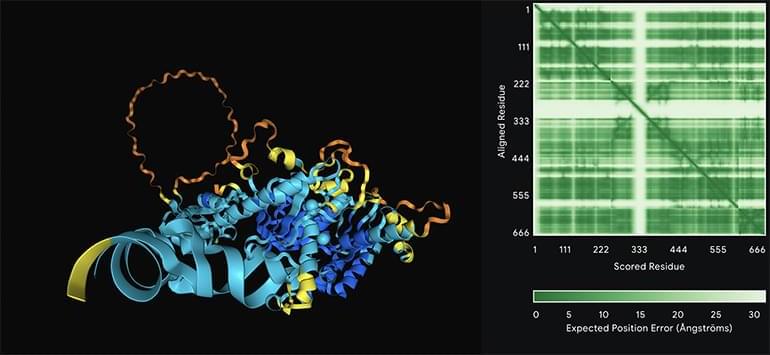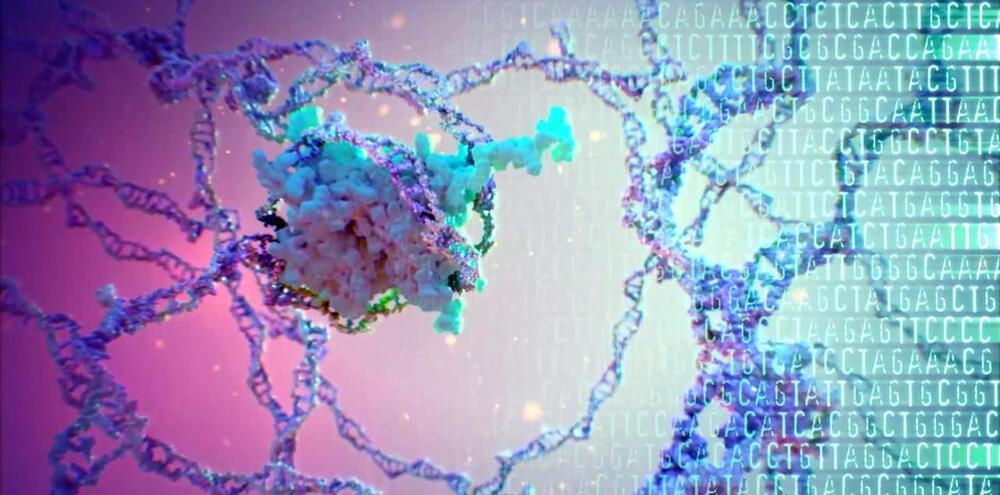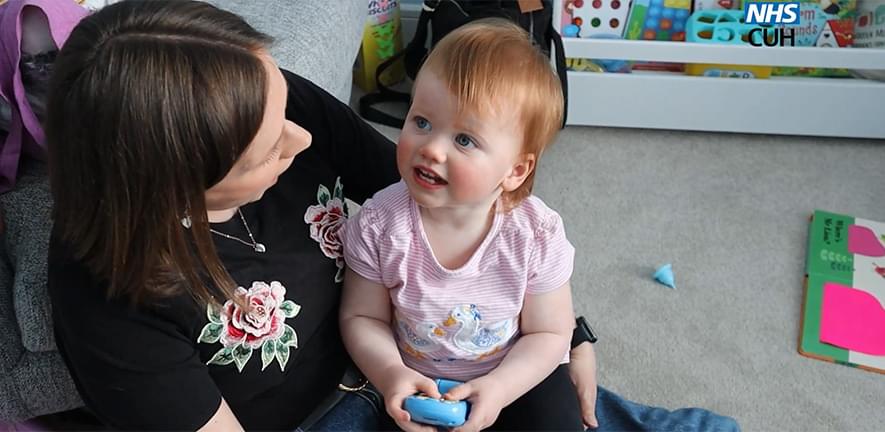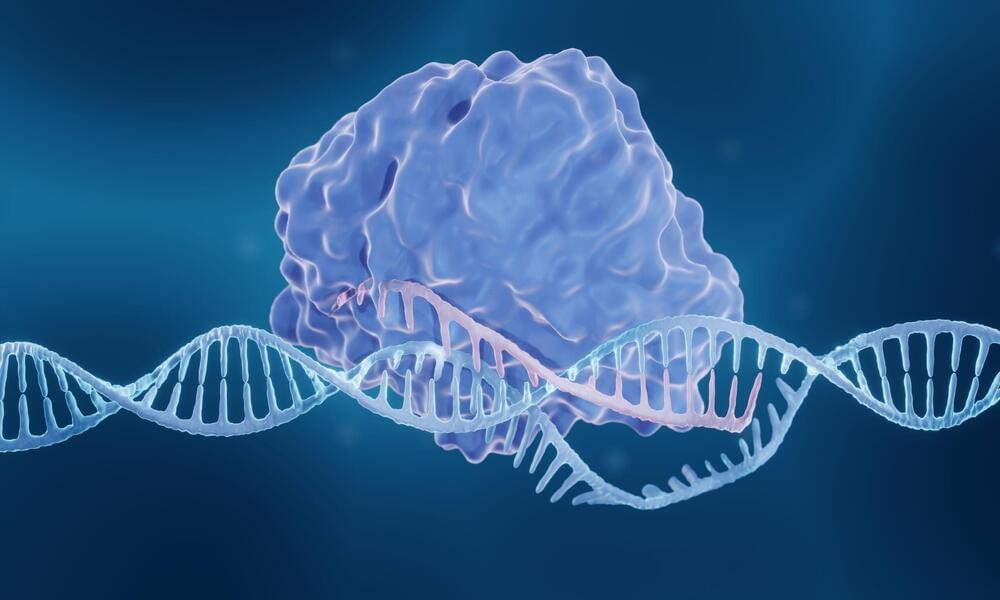Archive for the ‘biotech/medical’ category: Page 209
May 11, 2024
CRISPR in Neuroscience: How Precision Gene Editing May Unravel How the Brain Works (and Why it Sometimes Doesn’t)
Posted by Dan Breeden in categories: bioengineering, biotech/medical, genetics, neuroscience
The brain is one of the most complex entities in biology. For thousands of years, humans have wondered how the human brain works, but only in the past few years has technology evolved so that scientists can actually answer some of the many questions we have. What are the causes of brain disorders? How do our brains develop? How does the brain heal after a head injury? While we still have a long way to go before we can understand the many facets of the human brain, one technology – CRISPR – has allowed us to start answering these questions on a genetic level.
What is CRISPR?
May 11, 2024
CRISPR-Cas9: A double-edged sword
Posted by Dan Breeden in categories: biotech/medical, genetics
What if someone handed you a tool and said that you could better the lives of people before their birth by changing their genes? Would you do it?
CRISPR-Cas9 is one such tool. It’s an efficient and effective gene-editing technology that works by tagging a section of DNA with an RNA segment, and then using a protein called Cas9 to cut the DNA at the specified point. Then, the cell’s own DNA machinery works to add or delete DNA.
This technology opens up the pathway to a variety of gene-editing applications, from eliminating HIV in living organisms to creating a potential cure for Huntington’s disease. There is especially high potential for single-gene disorders to be eradicated. For example, promising results from the successful removal of a gene known to cause fatal heart disease from the embryo will not only save lives but also prevent the passing down of the gene.
May 11, 2024
Combination of Genetics and Nanotechnology for Down Syndrome Modification: A Potential Hypothesis and Review of the Literature
Posted by Dan Breeden in categories: bioengineering, biotech/medical, genetics, nanotechnology, neuroscience
Down syndrome (DS) is one of the most prevalent genetic disorders in humans. The use of new approaches in genetic engineering and nanotechnology methods in combination with natural cellular phenomenon can modify the disease in affected people. We consider two CRISPR/Cas9 systems to cut a specific region from short arm of the chromosome 21 (Chr21) and replace it with a novel designed DNA construct, containing the essential genes in chromatin remodeling for inactivating of an extra Chr21. This requires mimicking of the natural cellular pattern for inactivation of the extra X chromosome in females. By means of controlled dosage of an appropriate Nano-carrier (a surface engineered Poly D, L-lactide-co-glycolide (PLGA) for integrating the relevant construct in Trisomy21 brain cell culture media and then in DS mouse model, we would be able to evaluate the modification and the reduction of the active extra Chr21 and in turn reduce substantial adverse effects of the disease, like intellectual disabilities. The hypothesis and study seek new insights in Down syndrome modification.
Keywords: Down syndrome, CRISPR/Cas9, Designed DNA construct, Poly D L-lactide-co-glycolide (PLGA), Nano-carrier, Chromosome 21 inactivation.
May 11, 2024
Oral Rinse Might Alert Doctors to Stomach Cancers
Posted by Paul Battista in category: biotech/medical
FRIDAY, May 10, 2024 (HealthDay News) — A quick swish at the doctor’s office could someday provide early detection of stomach cancer, the fourth-leading cause of cancer deaths worldwide, a new study reports.
Researcher found distinct differences in bacteria samples taken from the mouths of people with stomach cancer or pre-cancerous stomach conditions, compared with samples from healthy patients.
A simple oral rinse could pick up those bacteria as part of a quick and easy cancer screening, researchers will argue May 20 during a presentation at the Digestive Disease Week meeting in Washington, D.C.
May 11, 2024
Baby born deaf can hear after breakthrough gene therapy
Posted by The Neuro-Network in categories: biotech/medical, innovation
**Breakthrough*** Clinical trial shows promising results.
Opal Sandy from Oxfordshire is the first patient treated in a global gene therapy trial, which shows ‘mind-blowing’ results.
A baby girl born deaf can hear unaided for the first time, after receiving gene therapy when she was 11 months old at Addenbrooke’s Hospital in Cambridge.
Continue reading “Baby born deaf can hear after breakthrough gene therapy” »
May 11, 2024
Neuroscience and Society, a Featured Article Series by the Hastings Center
Posted by Nancie Hunter in categories: biotech/medical, computing, ethics, law, neuroscience
This spring, the Hastings Center Report added a new series of essays named after the field its pieces aim to explore. Neuroscience and Society produces open access articles and opinion pieces that address the ethical, legal, and societal issues presented by emerging neuroscience. The series will run roughly twice a year and was funded by the Dana Foundation to foster dynamic, sustained conversation among neuroscience researchers, legal and ethics scholars, policymakers, and wider publics.
The first edition of the series focuses on the topic of research studies and what is owed to people who volunteer to participate in clinical trials to develop implantable brain devices, such as deep-brain stimulators and brain-computer interfaces.
Imagine you have lived with depression for most of your life. Despite trying numerous medications and therapies, such as electroconvulsive therapy, you have not been able to manage your symptoms effectively. Your depression keeps you from maintaining a job, interacting with your friends and family, and generally prevents you from flourishing as a person.
May 11, 2024
Gene Editing for Inherited Form of Blindness Shows Promise in Phase I/II Trial
Posted by Dan Breeden in categories: bioengineering, biotech/medical
CRISPR gene editing leads to improvements in vision for people with inherited blindness, a recent clinical trial shows.
May 11, 2024
AlphaFold 3 offers even more accurate protein structure prediction
Posted by Dan Breeden in categories: biotech/medical, robotics/AI

AlphaFold 3 by DeepMind accurately predicts protein structures and interactions, transforming drug discovery and structural biology.
May 11, 2024
Dr. Mirko Beljanski’s incredible story and research on natural anticancer compounds Pao Pereira and Rauwolfia
Posted by Paul Battista in categories: biotech/medical, chemistry

“As long as the pharmaceutical companies quest for innovation is solely driven by intellectual property rights, they will keep failing in the war on cancer.”-Sylvie Beljanski.
Dr. Mirko Beljanski PhD, was a molecular biologist at the Pasteur Institute in Paris who investigated how environmental toxins damage DNA leading to cancer as well as natural compounds with protective anticancer properties. His research eventually led him to the discovery of two unique and powerful anticancer plant extracts: Pao pereira and Rauwolfia vomitoria.















